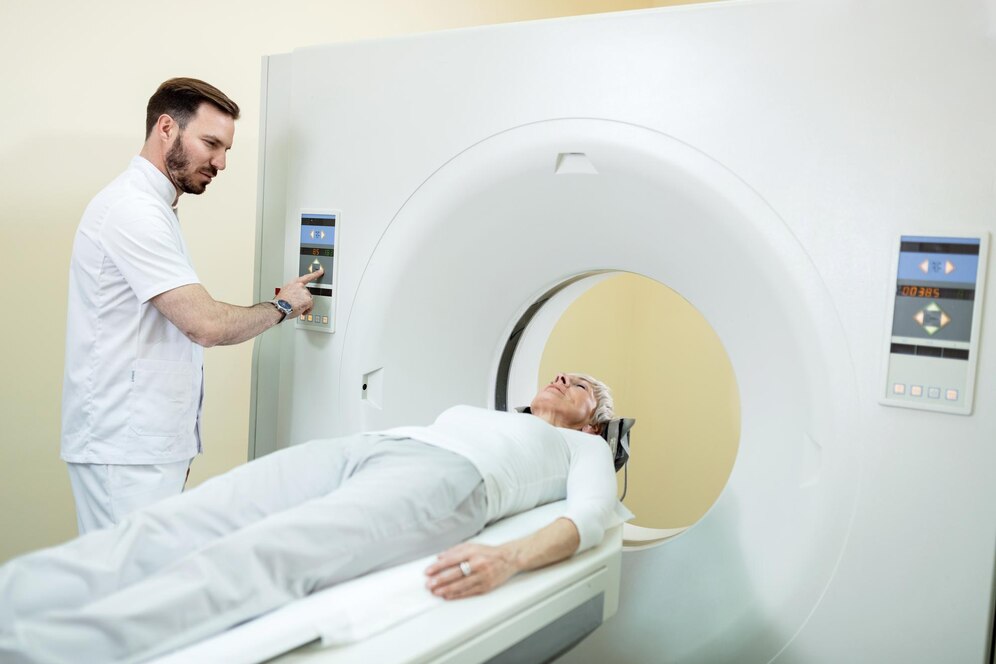In the dynamic landscape of healthcare, Radiology Technicians play a crucial role in the diagnostic process, utilizing cutting-edge technology to produce high-quality medical images. Aspiring individuals often wonder about the financial rewards associated with this profession. This comprehensive guide will delve into the Radiology Technician salary landscape in the United States, exploring factors such as geographic location, job roles, and work experience.
Radiology Technician Salary Guide in the United States of America
How much are Radiology Technicians paid in the United States of America?
Understanding the average salary for Radiology Technicians in the United States is essential for those considering or already embarked on this career path. According to recent data, the median annual salary for Radiology Technicians in the U.S. is around $67,180. However, various factors can influence this figure, including location, education, certification, and years of experience.
Best Paying Cities in the United States of America for Radiology Technicians
Geographic location is a significant determinant of Radiology Technician salaries. Certain cities offer higher compensation due to a higher cost of living, demand for healthcare professionals, and other regional factors. Some of the best-paying cities for Radiology Technicians in the United States include:
- San Francisco, CA
- Seattle, WA
- Boston, MA
- San Jose, CA
- Anchorage, AK
These cities not only provide competitive salaries but also boast a thriving healthcare sector with ample job opportunities for Radiology Technicians. For further information, ZipRecruiter compiled the average annual compensation for Radiology Technicians based on state:
| State | Average Annual Compensation |
| New Jersey | $102,828 |
| Wisconsin | $100,613 |
| Washington | $99,315 |
| Massachusetts | $99,165 |
| Alaska | $99,120 |
| Oregon | $98,508 |
| North Dakota | $98,280 |
| New Mexico | $96,735 |
| Hawaii | $96,346 |
| Minnesota | $95,776 |
| Colorado | $94,545 |
| New York | $94,036 |
| Nevada | $93,720 |
| Ohio | $93,505 |
| South Dakota | $92,885 |
| Vermont | $91,603 |
| Rhode Island | $91,242 |
| Iowa | $90,642 |
| Connecticut | $90,090 |
| Delaware | $89,423 |
| Tennessee | $89,277 |
| Mississippi | $88,692 |
| Utah | $88,689 |
| Virginia | $88,351 |
| Illinois | $87,350 |
| Maryland | $86,657 |
| Pennsylvania | $86,152 |
| California | $86,059 |
| Nebraska | $84,968 |
| Maine | $84,241 |
| Missouri | $84,021 |
| New Hampshire | $83,679 |
| Louisiana | $83,619 |
| Kansas | $83,478 |
| South Carolina | $83,209 |
| Wyoming | $82,534 |
| Oklahoma | $82,284 |
| Idaho | $82,184 |
| Indiana | $81,578 |
| Texas | $81,503 |
| North Carolina | $81,492 |
| Arizona | $79,892 |
| Montana | $78,687 |
| Kentucky | $78,589 |
| Michigan | $78,317 |
| Alabama | $77,705 |
| Arkansas | $74,538 |
| Georgia | $72,388 |
| West Virginia | $66,536 |
| Florida | $64,065 |
What are the Best Paying Radiology Technician Roles?
Beyond geographic location, the specific role a Radiology Technician assumes within the healthcare system can significantly impact their earning potential. Specializations and advanced certifications often lead to higher salaries. Here are some of the best-paying Radiology Technician roles:
- Outpatient Care Centers: $111,290
- Hospitals: $80,370
- Medical and diagnostic laboratories: $79,110
- Physician offices: $79,020
Pursuing additional certifications in these specialized areas can open doors to higher-paying positions within the field of radiology.
Radiology Technician Salary Based on Work Experience
As with many professions, work experience is a key factor influencing salary levels for Radiology Technicians. Here is a breakdown of average salaries based on experience:
- Entry-level (0-1 years): $20.61 per hour
- Early career (1-4 years): $21.91 per hour
- Mid-level (5-9 years): $24.05 per hour
- Experienced (10+ years): $29.45 per hour
Those in the early stages of their careers can expect to see an increase in their salary as they gain valuable experience and expertise in the field.
How to Increase Your Earning Potential?
Radiology Technicians looking to boost their earning potential can take several strategic steps to enhance their career trajectory.
- Advanced Certifications: Acquiring additional certifications in specialized areas such as MRI or CT imaging can make Radiology Technicians more valuable to employers and result in higher compensation.
- Continuing Education: Staying abreast of the latest advancements in radiology technology through continuous learning and professional development can position Radiology Technicians as experts in their field, potentially leading to promotions and salary increases.
- Networking: Building a strong professional network within the healthcare industry can provide access to career opportunities, mentorship, and insider knowledge on higher-paying positions.
- Seeking Career Advancement: Climbing the career ladder by pursuing supervisory or managerial roles can significantly impact salary levels. Positions such as Radiology Manager or Director often come with higher compensation packages.
- Relocating to High-Paying Areas: Consider relocating to cities or regions where the demand for Radiology Technicians is high and salaries are more competitive.
Conclusion
Navigating the Radiology Technician salary landscape in the United States involves considering various factors, including geographic location, specialization, and work experience. Understanding the nuances of salary trends in the field allows individuals to make informed decisions about their career paths and take strategic steps to enhance their earning potential. By staying proactive, continuously learning, and exploring opportunities for career advancement, Radiology Technicians can achieve both professional fulfillment and financial success in this vital healthcare profession.




